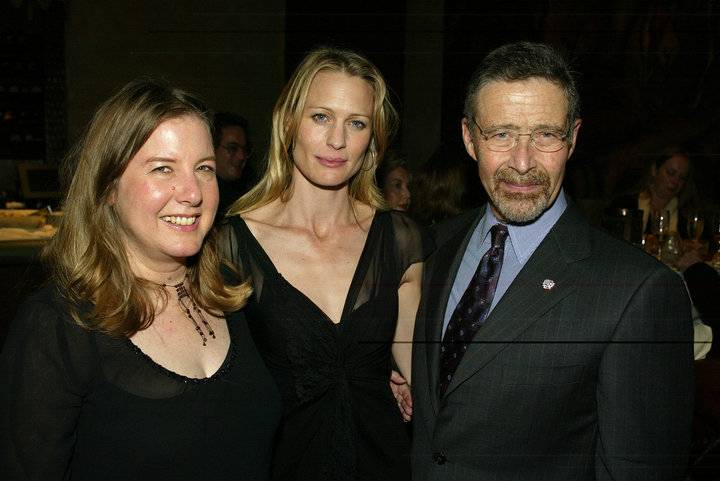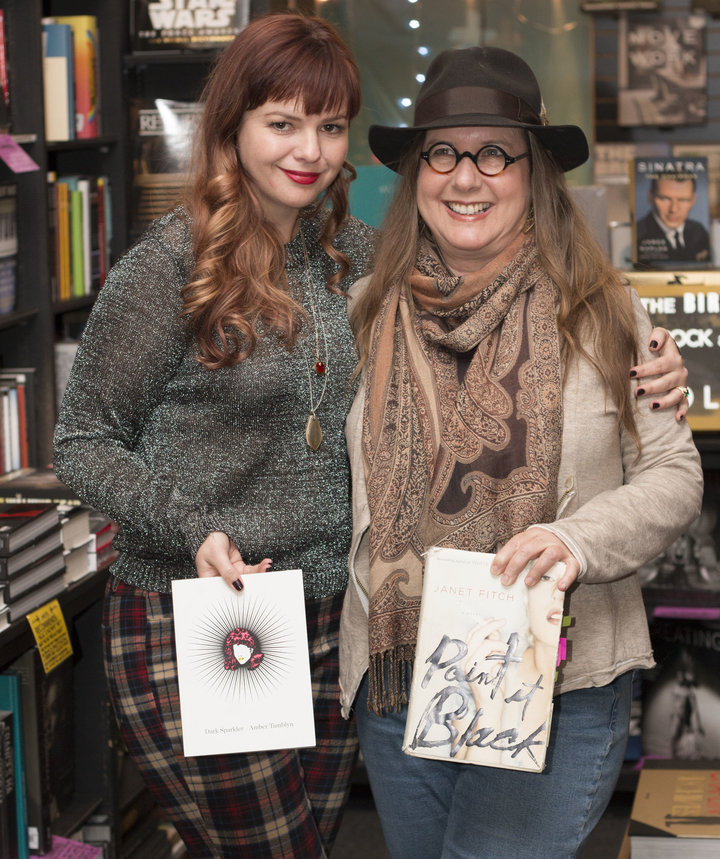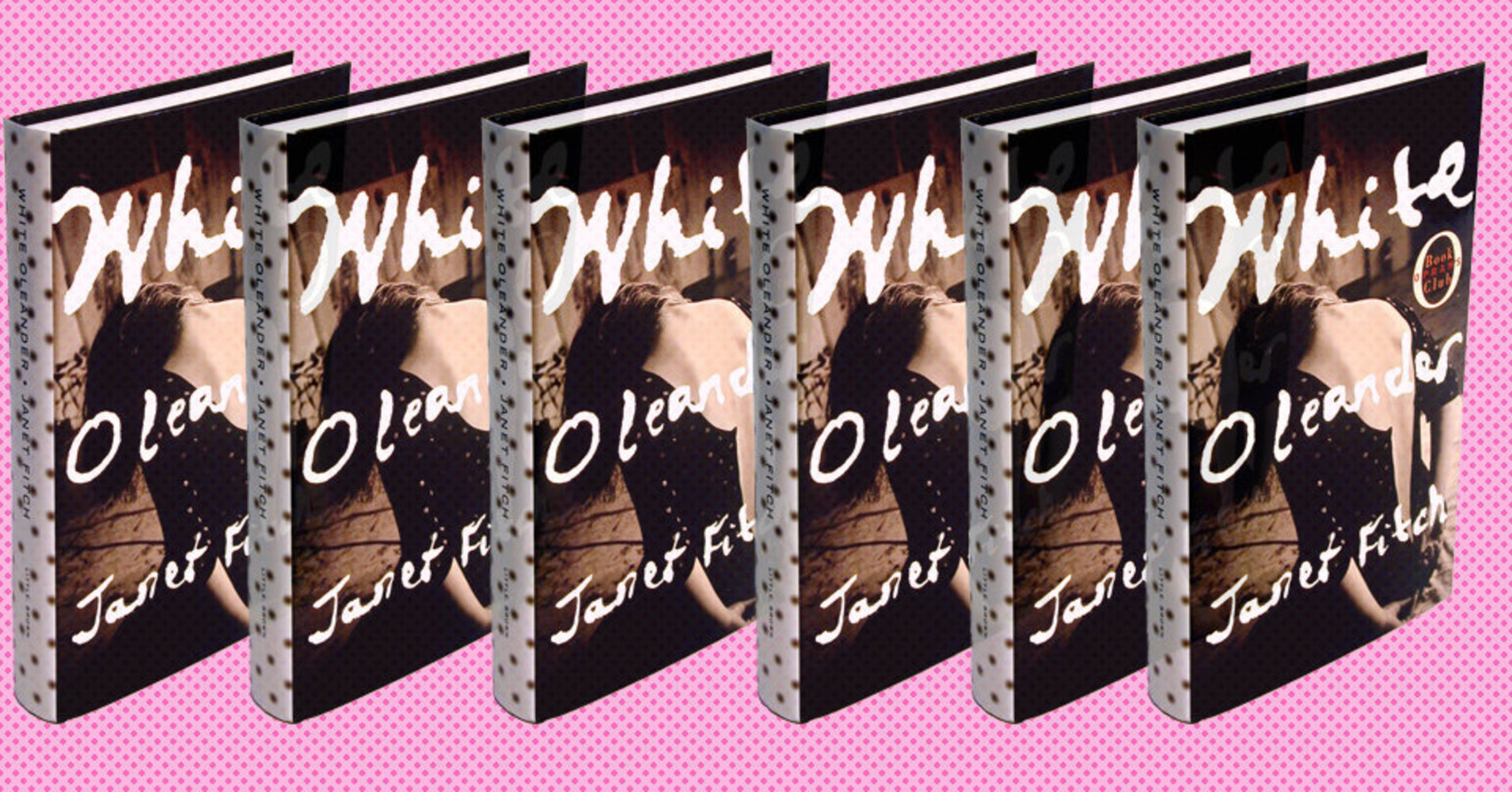[ad_1]
It has been almost two decades since Janet Fitch published her debut novel, White Oleander, about a girl separated from her parents and thrust into the grueling American foster system.
In 1999 the book introduced the world to Astrid, a 12-year-old whose mother loses custody of her after being charged with murder. Astrid is flung from the home of one stranger to the next, facing a litany of inhumane treatment along the way. In one residence a lock is placed on the refrigerator, and Astrid is forced to beg for food. In another, her foster mother shoots her in a blind rage.
White Oleander launched Fitch onto a national stage, earning the Oprah Winfrey book club seal of approval, a spot on best-seller lists and a 2002 film adaptation. To readers, Astrid emerged as a protagonist they could relate to — as Fitch put it, “not just a victim and not just a survivor.” Nearly 20 years later, amid the fallout from zero tolerance immigration policies that continue to splinter families in the U.S., Astrid’s journey still stings. White Oleander speaks to the unique experience of one displaced child and the grim reality of living in detention.
The novel takes place in Los Angeles, where Fitch grew up and still lives. When I spoke with her over the phone this month, she was working from her home. Since White Oleander, she has written two novels, Paint It Black and The Revolution of Marina M, and is finishing a sequel to the latter, about a young poet during the Russian Revolution.
In a soft, plaintive voice, she talked about the origin of characters like Astrid, authors’ political responsibility and the frustrating nature of rehash culture.

Kevin Winter / Getty Images
White Oleander really was an important book for me. I definitely haven’t had the same experiences as Astrid, but just reading about them, I sympathized with her on a really deep level.
Where did the idea for the character of Astrid come from?
Oh, man, have you read any of the articles and stuff online about White Oleander? Or on my website or interviews with me before? That’s a rather complex question.
I’ve read them. I remember you mentioned something about the character of Ingrid coming first, so is Astrid inextricable from her mother?
Well, Astrid came from a short story about Ingrid. It was a black comedy, and people hated her. They said, “Give her a friend. Give her a co-worker. Someone that we that we can see her through.” I gave her a daughter, and then it wasn’t funny anymore.
So I had no idea that Astrid would go into foster care. I had circulated the story to literary journals. I always would send it to The Ontario Review because [associate editor] Joyce Carol Oates was one of my heroes. I usually got form rejections from them, but this time I got a little 1-by-1 Post-it note saying, “Good story. Too long for us. Seems like the first chapter of a novel. J.C.O.” And I thought, “Oh, well, if Joyce Carol Oates thinks there’s a novel there, I’m going to give that a try.”
So I started writing it. To write after that short story was to decide what would happen to Ingrid, because at the time she’s murdered her boyfriend. So I said, OK, well, what happens to Ingrid? Does she go to prison or not? I think … you shouldn’t pull punches in books. That if somebody’s done something like this, yes, they go to prison. She went to prison, and I had to decide what would happen to her daughter. I put Astrid with one friend, and nothing happened. Put her with a different friend, nothing happened. When I was growing up, I had a friend who went into foster care when I was in elementary school, and I realized I did know what could happen to Astrid ― that she would go into foster care.
My friend, her mother died, and her father died, and she went to live with an elderly aunt, who died. She went briefly to live in a home, and then when she came out a week later, they found a brother. She talked about what that was like. Just, the floor dropped out from under you. You found yourself in that entirely different world. It changed me as a kid to realize that something could happen to your family and you could end up in a very different world. Then her brother was arrested, and she disappeared, and she went into foster care. I always thought about her, but I hadn’t really realized how much I had thought about her until I was thinking about what was going to happen with Astrid. I realized I was very concerned with foster kids without even knowing it — this deep anxiety.
Anyway, that’s where the character of Astrid started.
Even if I’m writing a personal story, it will reflect our times, and it will be deeply political without being obviously political, because I think that by writing honestly, we’re always reflecting our world.
Janet Fitch
How similar was that first draft of the short story to the first chapter of the book?
It’s the first three chapters. But you know, it expanded and changed.
Was there anything else about Astrid that was informed by your experience?
Yeah, there were a number of aspects. Your characters are all equally your own. They’re all parts of you. So I’m Astrid, but I’m also Ingrid, and I’m also Claire [one of Astrid’s foster parents], and I’m also bits and pieces of a lot. Astrid is somebody who is having to adapt to radically changing situations — a very common issue and experience. She’s trying to figure out who she is in a time where everybody wants to be somebody else. She’s trying to meet people’s expectations and at the same time trying to understand her own authentic reactions. And I think that that’s what growing up is, albeit in a much more extreme way for Astrid.
Do you think that’s what makes Astrid so relatable?
Oh, yeah … I think that her combination of vulnerability and strength is what makes her relatable. She’s not just a victim and not just a survivor. She’s right in the middle. You don’t know how things turn out for her. So a lot of it is just holding your breath, like, is she going to make it?
I think she’s also relatable in that she sees people. People don’t hide things from children. It’s right there. I think children often see things much more clearly than adults do, because they’re not talking themselves into a story about it.
What can young people who are living away from their parents learn from the character of Astrid?
What happens with Astrid is that she’s been introduced to the fact that there’s a bigger world. This is what reading does for us, this is what art does for us, music, that anything that’s kind of a snorkel up out of the situation you find yourself in [does for us]. I think kids living away from their families in radically disrupted situations often don’t have that snorkel. That’s why they’re drowning.
I think that’s what Astrid’s experience has to say to those people. It depends on access to a single book, which is not always a likely situation. But what her situation can speak to all of us is what it feels like to be that lonely, that child who needs a family, needs somebody to care. It tells all of us what that experience is. And in that situation, it tells [children] that they’re not alone and that people make it through this kind of thing.
Speaking of art as a means of survival — it’s clear from your blog posts that you’re passionate about political issues. Do you believe that writers have a responsibility to write in response to politics in some form?
I think that there are all kinds of writers, just like there are all kinds of people. Some of them want to respond to the pressure of the immediate, and some are more responding to the human condition. There are so many different ways to comment on a political situation. Politics is just about power relationships between human beings. Some writers are going to respond to immediate situations and talk about the immediate crises and create characters who are involved in those immediate crises. Some people will write personal stories that cannot avoid reflecting on the political, because we live in the world. Even if I’m writing a personal story, it will reflect our times, and it will be deeply political without being obviously political, because I think that by writing honestly, we’re always reflecting our world.

Tasia Wells / Getty Images
The personal can be very political.
So you don’t have to even have a political agenda to have your work reflect on the politics and the economic situation of your time. It’s going to be part of [that]. That’s very much a part of the Russian Revolution books that I’m writing, The Revolution of Marina M. It’s about a young poet coming of age during the Russian Revolution. How political, how superficially political one’s work needs to be was a tremendous question at the time. And it still is.
What are your opinions on President Donald Trump’s family separation policy for unauthorized immigrants?
I think that it is probably the latest outrage ― that in our treatment of immigrants and migrants, our country [has an] absolute inability to see the work of people who contribute so much to our country. The energy of immigrants and migrants has built this country and made it what it is. The family separation [policy] is just the absolute lack of respect for people and their humanity. It’s probably the worst outrage in a time of horrendous outrage.
Your family is Russian. Were they immigrants as well?
Did The Revolution of Marina M connect you to your Russian heritage?
I think it’s the other way around. I think that my interest in Russia was both familial and literary, and that’s the matrix or the soil that the book grew out of, rather than connecting me back.
What is it about young adult women or women in transition that attracts you to writing about them?
I think it’s because young women are making their decisions about life in a big way. I think we are all doing it all the time, but I think that young women especially, young people especially, are making their decisions. So they’re very, very open to what they’re seeing, hearing, encountering and processing all the time. What do I really think about someone? What do I really think about something? That’s very interesting, although who knows what I’ll write my next book about? I’m very interested in the creation itself, of how these experiences change us, touch us and how we’re built not with a fine tool but how we build ourselves layer by layer. We don’t completely cast out the last experience. We build the next experience on that, and the collective experience is what we become.
Why did you choose fiction as your particular means of expression?
I think that fiction speaks to the individual. It’s just writer to reader, and it’s not really telling you anything. It’s laying out a case, almost, and it’s very subtle, and it’s complex, like life is complex. It’s not saying, “This is what I believe. This is what you should believe.” It’s saying, “Here are living people going about their lives trying to meet their needs in a world that is generally very unfair and difficult. And how do they find their way?” I think there are so many questions you can answer in that kind of situation.
As for memoir, I just don’t think my story has the resonance that the stories that I can imagine of other people. I don’t think that I’m the most interesting person I can think of. I can be very subtle and slip in things that I’ve seen and know and think, but it’s always very sneaky. Fiction writers are very sneaky. We want to do everything with the hidden hand.
I did not ever expect a mass audience. So it came as a bit of a shock, and it threw me for a while. But I’m a writer, and what I do is keep writing.
Janet Fitch
Do you have any advice for young writers?
Yes, I do! I believe that young writers should notice. I have a writer friend who says it’s not what you know, it’s what you notice. I advise young writers to just carry a notebook with them and anything that interests them, anything they see that they think will have that little gasp, “Oh, wow, cool,” to write that down. Because you will forget it … Stay off screens and go out and interact with the world at large and notice. Be curious about things rather than think you know them. “Oh, yeah, I don’t have to know them, I’ll just look it up.” There’s nothing to replace direct observation. William Carlos Williams said that observation is the first act of the imagination.
So notice what’s going on in the world and … try to describe it. Challenge yourself to eliminate cliche. Anything you’ve ever heard before, seen before, read before is cliche … is borrowed language. So get rid of them. Try to come up with original descriptions for what you’re seeing instead of quoting. We live in such a quoting society. Everything is repackaged, and it’s just getting blurrier and blander as we go along. There’s nothing crisper than those direct observations of the world.
It’s definitely hard to feel that there’s anything new under the sun at this point, but people have probably been saying that forever.
Well, it’s because people are not directly encountering reality. They’re hashing over phrases and ideas and language. The world is as fresh as it’s always been. It’s us. We tend to isolate and insulate ourselves, being air-conditioned with the windows rolled up in the car and going to the same places and spending too much time on preprocessed information on our screens. We’re lazy and don’t really turn them off and go out into the world. Comfort is supremely uninteresting.
Our clothes are very soft, and our air-conditioning is really good, and we have music that we can drown out ambient sound. We don’t smell things. We don’t touch things. It’s getting rid of all that comfort and being willing to be uncomfortable … that will draw out that work.
Was it hard to live up to such a successful book as White Oleander?
Well, it throws you. I’ve been writing for a long time, and what I had imagined as success was just to get a book published with a decent publisher, something that I was proud of, and have some good reviews and some people buying it. I did not ever expect a mass audience. So it came as a bit of a shock, and it threw me for a while. But I’m a writer, and what I do is keep writing. Success is shocking. It does throw you if you’re used to failure. You know how to deal with failure, but if you’ve never had success … suddenly you just don’t have the tools, so it throws you.
How did you learn to deal with failure?
By being a defiant person in general. I’m very much a “You think you’re gonna reject this? Well, screw you” [person], which has always been my attitude.
Do you have any creative outlets other than writing?
Oh, yeah. I’m a terrible artist, but I like to make art, and I dance. Believe me, I’m no Isadora Duncan, but I love to dance, and I love art. I love travel. But I draw. Sketching is a lot like writing. You have to look and take a good, long time and really examine it. Not just quick click a picture on my phone and move on. It takes time, and I love that. I love that because people come over and see what you’re drawing. It’s such a good way to meet people when you’re traveling.
This interview has been edited and condensed for clarity.
[ad_2]
Source link

